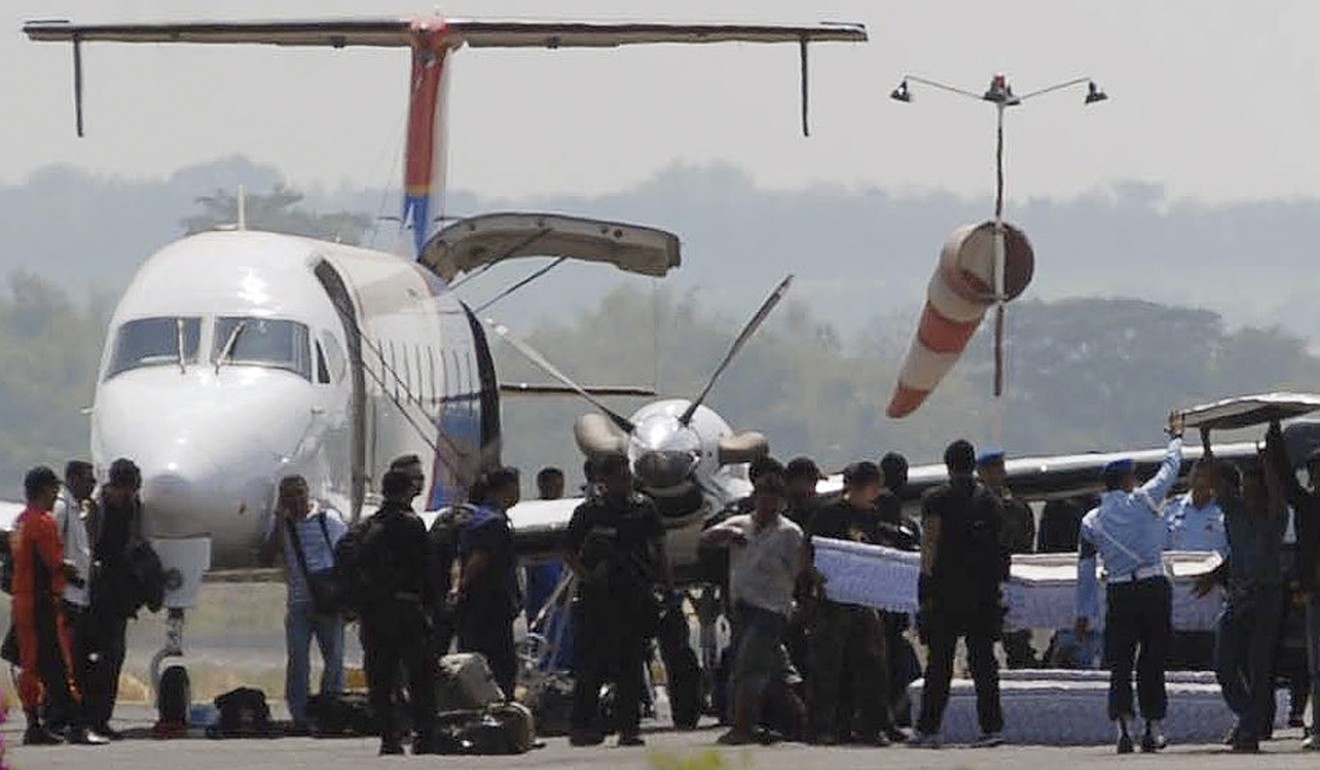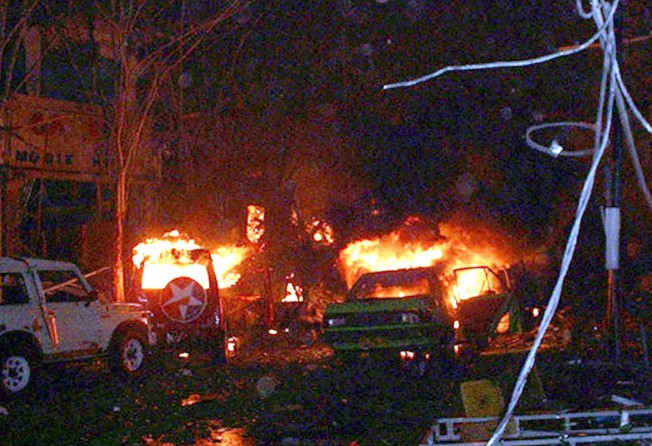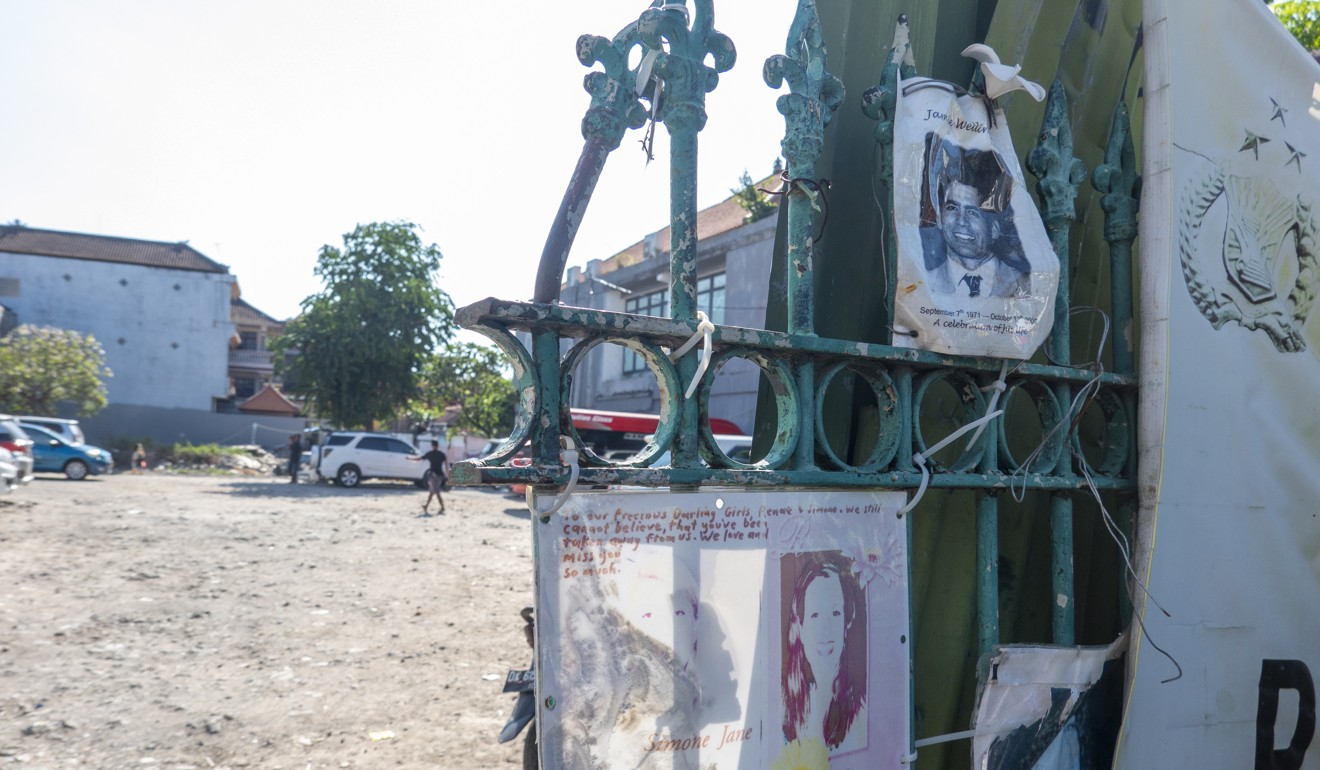
Indonesia’s arrest of Jemaah Islamiah leader involved in Bali bombings exposes active recruitment to create caliphate
- Para Wijayanto – known as the “crown prince of Jemaah Islamiah”, the Southeast Asian wing of al-Qaeda – was involved in a spate of bombings across Indonesia
- He evaded capture for so long because he often used a burka to disguise himself, according to an expert

The Indonesian police’s arrest of the leader of Jemaah Islamiah (JI), the Southeast Asian offshoot of the international terrorism network al-Qaeda, has revealed how the group is actively recruiting members and cultivating palm oil plantations to fund its bid to establish a caliphate in the country.
Para Wijayanto, 54, who has been at large since 2003, was arrested on Saturday at a hotel in Bekasi, West Java, together with his wife and one trusted aide. On Sunday, two other JI members were arrested, according to Indonesian police.
Para, who came to be known as the “crown prince of JI”, was named the militant extremist group’s emir, or leader, in 2008, owing largely to his good organisational skills though his knowledge of Islam was limited, police said.
JI was behind all of Indonesia’s major terror attacks from 1999 to 2010, including the devastating 2002 Bali bombings which killed 202 people. At least 11 Hong Kong residents died in the blast.
Police said Para was involved in those attacks, as well as the Christmas Eve 2000 bombings across the country and the 2004 bombing of the Australian embassy in Jakarta. He is also believed to have been actively involved in terror activities in the eastern city of Poso on Sulawesi island from 2005 to 2007.
Under Para’s leadership, JI – which had earlier focused its attacks primarily on Western interests – has been building a clandestine paramilitary wing, according to police and terrorism experts.

The group actively recruited members on campuses to build up its forces, which had been weakened following the slaying of key strategists Noordin Mohammad Top and Azahari Husin – both Malaysians – as well as the arrests of its leaders between 2004 and 2010.
It is believed to have recruits in West Java, Central Java and East Java, police said.
Terrorism researcher Mohamad Adhe Bhakti said while JI’s popularity had been eclipsed by Islamic State, it deserved “special attention” as it was “an alternative group for supporters of al-Qaeda in Southeast Asia”.
Police had difficulties catching [Para] because he’d always used a burka [to disguise himself]
“Police had difficulties catching [Para] because he’d always used a burka [to disguise himself],” he said.
Indonesian police spokesman Dedi Prasetyo on Monday told reporters that Para had recruited and sent people for war training in Syria between 2013 and 2018.
“Six ‘waves’ of them have left for Syria and returned to Indonesia. They were arrested last May,” he said, adding that at least 14 JI members went to Syria, about half making the trip several times.
JI, which some now refer to as “neo-JI” following its change in approach, also communicated with al-Qaeda’s splinter cells in Afghanistan and Pakistan as well as militants in the Philippines.
“[Para] and its Indonesian network also carried out international actions under the flag of al-Qaeda,” said Dedi, without giving further details.
Police believed JI stopped its violent activities following the slaying of al-Qaeda leader Osama bin Laden in 2011, but it was by no means keeping quiet.
“They are actively recruiting people, sending them outside Indonesia to build up intelligence gathering, war and militancy capacity and then later return to Indonesia,” Dedi said.

JI has also been building up its business interests, particularly palm oil plantations in Kalimantan and Sumatera. This enabled the group to pay its “officers” a monthly salary of 10-15 million rupiah (US$707 to US$1,061), according to police.
An engineering graduate of Diponegoro University in Semarang, Central Java, Para trained on the southern Philippine island of Mindanao in early 2000.
Former JI leader Nasir Abas, who taught Para while serving as an instructor there from 1994 to 2001, described him as very bright. Nasir, once the most-wanted jihadist in Southeast Asia, is now involved in deradicalisation efforts and other initiatives to counter violent extremism in Indonesia.
“Yes, I was his instructor,” Nasir told the South China Morning Post. “Para was a very smart student and fast learner who was good with weapons. And he could also assemble bombs.”
Para’s wife, who was arrested with him, is also known to be an active member of JI.
Police said the arrests were a preventive strike to prevent JI from growing bigger. The spokesman Dedi said JI’s plan was to declare the establishment of a caliphate when its paramilitary and economic capacities were “very strong”.
“At the moment, JI is not seen as carrying out terrorism acts in Indonesia. But the group is building up itself as a force to set up a caliphate,” he said.
“You can imagine when this organisation becomes big and possesses mass support, backed by economic capability … the possibility of JI’s ambition of setting up a caliphate in Indonesia could then be realised.”
Additional reporting by Kyodo